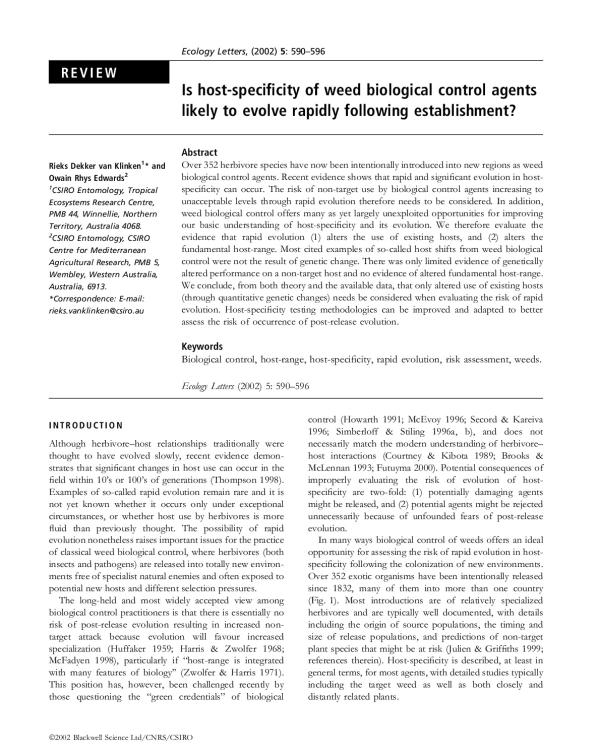Publisher
Ecology Letters
Publication Year:
2002
Publication Place
Ecology Letters
Physical Description:
Volume 5, Issue 4, 590-596 pages
Call Number
[EL]
Material Type
Language
English
Record ID:
976
Legacy PEIN ID:
44029
General Notes
Available online
Available online
Subject Heading(s)
Is host‐specificity of weed biological control agents likely to evolve rapidly following establishment?
Abstract
Over 352 herbivore species have now been intentionally introduced into new regions as weed biological control agents. Recent evidence shows that rapid and significant evolution in host-specificity can occur. The risk of non-target use by biological control agents increasing to unacceptable levels through rapid evolution therefore needs to be considered. In addition, weed biological control offers many as yet largely unexploited opportunities for improving our basic understanding of host-specificity and its evolution. We therefore evaluate the evidence that rapid evolution (1) alters the use of existing hosts, and (2) alters the fundamental host-range. Most cited examples of so-called host shifts from weed biological control were not the result of genetic change. There was only limited evidence of genetically altered performance on a non-target host and no evidence of altered fundamental host-range. We conclude, from both theory and the available data, that only altered use of existing hosts (through quantitative genetic changes) needs be considered when evaluating the risk of rapid evolution. Host-specificity testing methodologies can be improved and adapted to better assess the risk of occurrence of post-release evolution.
Related Project(s):
Programme(s):
Publisher
Ecology Letters
Publication Year:
2002
Publication Place
Ecology Letters
Physical Description:
Volume 5, Issue 4, 590-596 pages
Call Number
[EL]
Material Type
Language
English
Record ID:
976
Legacy PEIN ID:
44029
General Notes
Available online
Record Created: 03-Mar-2022
Record Modified: 15-Jan-2024

